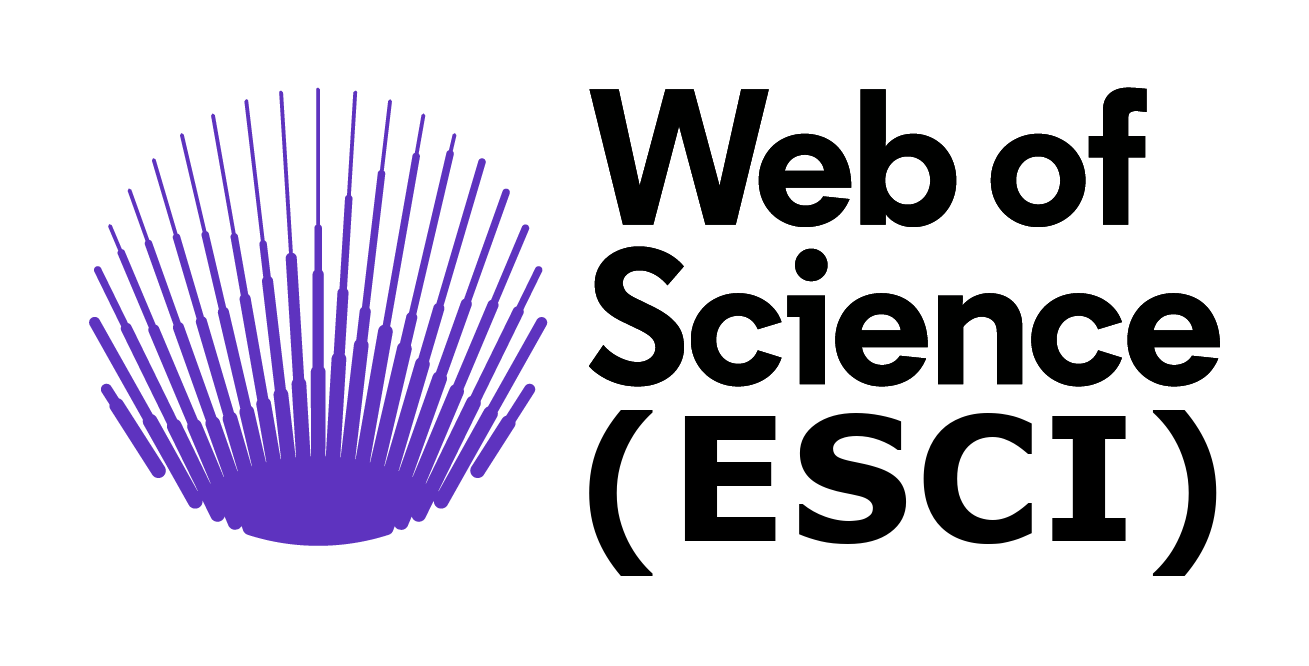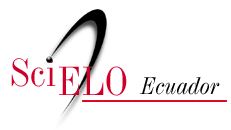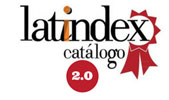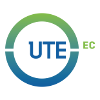Ethics
Code of ethics and good practices
General references
Enfoque UTE adheres to the guidelines for publication ethics, defined by COPE to encourage and support good editorial practices. This document has been prepared in accordance with the standards established in Guidelines on Good Publication Practice.
All our collaborators, readers, authors, reviewers, and editors tacitly declare that have read and understood these principles and agree with their application.
On scientific work
All submitted work must follow the highest technical and ethical principles established in national and international standards. The research carried out must be correctly designed and planned, and the authors will commit to save and present, if requested, the documents that validate it. When, due to its nature, it is necessary, the researchers must present the approval documents of a duly constituted ethics committee, which will certify the correctness of the study.
By submitting an article to Enfoque UTE the authors accept the parameters established in this document, as well as the selection processes defined by the Journal and its Editorial Committee.
The submission of the article must be adjusted to the conditions indicated in the Author Guidelines.
Authorship
As a fundamental principle, all authors must take formal and public responsibility for the entire content of their article. Authors must be prepared to provide any additional information that may be required by the journal to clarify any questions or concerns that arise during the review process.
In addition, the disclosure of individual contributions is also necessary, clearly indicating the participation of each author in the conception, design, analysis, writing and any other activity directly related to the study.
Finally, if there is no task that can be attributed to a particular author, that author should not be credited or included in the document. In no case will "honorary" authorship be accepted by the journal.
In order to establish the authorship of scientific works, an author is understood to be someone who:
- Participated in the formulation of the problem and the hypothesis.
- Conceptualized, created, thought about, studied, reviewed, analyzed, or interpreted the data.
- Participated in the creative elaboration of the manuscript, or in the edition of the statistical analysis.
- Had a leading role in the final version of the work or wrote a significant portion of the text.
- Participated in the interpretation of the results.
- Is the principal investigator of the research project and has conceived the central idea of the entire manuscript.
- Has the ability to explain and defend portions of the work or study in public or academic places (CNRSI, 2008).
Those who do not meet any of these criteria may appear as collaborators in the acknowledgments, but in no way as authors of the manuscript.
Finally, the submission of a manuscript without the permission of one of the authors will not be accepted for any reason.
Handling of complaints and appeals
The authors, reviewers or readers of Enfoque UTE have the right to submit any complaint related to the journal. Especially in the case of authors, who have the full right to appeal review and editorial decisions. Complaints will be handled on the basis of the facts; therefore the complainant must argue their case solely on that basis. The journal formally commits itself to a complete and fair analysis of all the reasons, facts and evidence presented.
To file a complaint or appeal, the interested party must send an email to enfoque@ute.edu.ec, addressed to the Editor-in-Chief of the journal. The communication must:
- Formally confirm that all the guidelines and procedures provided by the journal have been read, understood, and followed without exception.
- Indicate clearly, specifically, and unequivocally the nature of the claim.
- Provide in an organized and detailed manner all the facts that justify the case.
- Include in attachment all the documents that support the reasons and facts exposed for the complaint.
- Formally acknowledge that they will accept the journal's decision as final once the defined procedure has concluded.
Once the complaint or claim is received, the Journal will establish the following procedure:
- Within 10 business days after receipt, an acknowledgment of receipt of the claim will be sent to the petitioner.
- Within 30 business days following its recognition, the Journal will analyze the nature of the claim, the facts that justify it and the documents that support it. A preliminary response will be sent to the petitioner.
- The applicant will have 30 business days to answer, either accepting the preliminary decision or challenging it, in which case he must provide further justification and evidence. If no formal response is received from the interested party, the decision will be considered final, and the Journal will execute the required actions in accordance with the provisions of the communication issued.
- If the preliminary decision of the Journal is formally challenged, the journal will set up a special committee of specialists and peers who will analyze the case. The committee's decision will be issued within 90 business days and will be considered final, so it will be executed in its terms as soon as possible after being communicated to the interested parties.
Journal policies on conflicts of interest
Conflicts of interest are all those situations that could potentially exert an undue influence on the presentation, review, or publication of a manuscript. These conflicts may be financial, academic or professional, contractual or personal, or of any other nature not explicitly expressed.
All persons involved in the processing of a manuscript must declare any potential conflict of interest that may interfere with the objectivity or integrity of a publication. This includes authors who submit a manuscript, reviewers who are asked to evaluate a manuscript, and editors in charge of handling the manuscript. This declaration must be made together with the submission of the manuscript, in the case of authors, or as soon as the manuscript is received for handling or review, in the case of editors and reviewers.
Journal policies on unethical practices
In general, those involved in the process of publishing the journal's articles are committed to maintaining an honest conduct, with a professional technical practice and in good faith, always considering that the process and the results demonstrate ethical work. Those involved in the editorial process undertake, to the extent of their possibilities and responsibilities, to follow up on any complaint or suspicion of scientific malpractice and reserve the right to take the measures they deem appropriate in cases where lack of ethics in any work submitted for evaluation it is verified.
Faced with unethical behavior, the first decision will be made by the Chief Editor, who will analyze the issue and reject any document that includes inappropriate conduct or practices. If the problem or situation is greater, the Chief Editor may first seek advice from the Editorial Committee and then from the Journal's Publication Committee.
Some examples of these unethical practices may include:
- Plagiarism: plagiarism is identified as the violation of copyright and intellectual property punishable by law.
- Self - plagiarism: an author is considered to plagiarize himself when reuses its own material that has already been published, without indicating the reference to the previous work.
- Copy of work elements of another author (text, illustrations, graphics, formulas) that are not properly referenced under international citation standards.
- The incorrect application of the citation when fragments of texts by another author are taken.
- Reuse of author content that has been previously published.
- Redundant or duplicate publication: simultaneous or multiple submission of the same article to different journals.
Procedure in case of suspected plagiarism and duplicate publication
The journal will follow the guidelines established by the Publication Ethics Committee (COPE) in handling unethical problems or conduct:
Suspected plagiarism in a submitted manuscript
Suspected plagiarism in a published manuscript
Suspected redundant publication in a submitted manuscript
Suspected redundant publication in a published manuscript
Plagiarism and duplication
Every source of information used must be identified and referenced. Under no circumstances will the authors submit the same manuscript for evaluation, simultaneously, to more than one journal, congress, or any publication source.
Anti-plagiarism system
Enfoque UTE has a publication similarity review system, prior to sending it to the peer reviewer, which guarantees that its publications are not covered by similarities or lack of citation.
Editorial responsibility
All those involved in the editorial process undertake to maintain total confidentiality about the manuscripts received, their authors and mainly topics. The editors will guarantee that the decision process is made exclusively based on technical considerations, quality and originality of the study, and respect for the usual accepted rules of scientific writing.
Authors' obligations
- Provide full names.
- Specify the institutional affiliation (university or institution in general to which the author belongs), including city and country.
- Provide the email.
- Provide the autor’s ORCID code, which identifies him/her as the sole author.
- Submit articles according to the specifications established in the Author Guidelines.
- Submit the declaration of originality of the article, under the understanding that by signing it the author declares that it has not been published in another journal.
- Declaration of incompatibility, in cases in which the author has a conflict of interest due to kinship or affiliation with its work.
- Declare if there is funding for the article and which institution provides it.
- Use proper citation of sources in APA, without omissions of authors or works, providing a reference link (preferably DOI) for each one.
- Make, within the established period, the adjustments that the text requires, within the editorial process.
- The author is obliged to inform the editor of any error detected in her article, through the established channels, so that the error could be rectified in the digital file.
General Duties and Responsibilities of the Editorial Team
The editorial team will be responsible for all the content published in the Enfoque UTE Journal. This implies:
- Protect intellectual property and copyright.
- Take care of the integrity of the scientific production published in the journal.
- Publish corrections, clarifications, retractions, and apologies when necessary and with due opportunity.
- Ensure that the editorial process is rigorous and clear.
- Make explicit to the authors the peer review and evaluation processes, as well as the application procedures and requirements, the conditions of access to the journal and the possibilities of using the different articles within the framework of copyright.
- Resolve in a timely and sufficient manner any concerns presented by the actors involved in the editorial process.
- The decisions to accept or reject an article for publication should be based on the importance, originality, and clarity of the article, as well as on the validity of the study and its relationship with the mission of the journal, for which the editorial team of Enfoque UTE guarantee quality and objectivity in the peer review and evaluation processes, as well as in the entire editorial process, respecting the commonly accepted rules of scientific writing.
Obligations and responsibilities of peer reviewers
All the articles that are considered for publication will go through the review of two peer evaluators external to the UTE University, to guarantee impartiality and verification of knowledge. Among the obligations and responsibilities of these peers are:
- Communicate to the editor when there is a conflict of interest or suspicion of some type of irregularity in the evaluated text.
- Meet the deadlines and times established for the evaluation process.
- Carry out a serious evaluation based on scientific rigor, originality, and relevance of the information.
- Follow the evaluation protocol provided by the journal.
- Make respectful and constructive comments that arise as a result of the evaluation of the article.
- Carry out the adjustment verification process, requested in the initial evaluation.
- Maintain the confidentiality of the evaluation process carried out.
- Provide the data required by the journal in the OJS system.
- Respect the times established for the revision of the document.
Journal Policy on Intellectual Property
Enfoque UTE is an Open Access journal that firmly believes in the free dissemination of scientific knowledge, which is why it guarantees that its contents and services in general will be totally free for readers (without subscription fees), authors (without APC) and general public. Under this consideration, the authors acknowledge and commit to the Open Access policy, also agreeing that the journal will not issue any royalty payments.
The authors retain all copyright rights to the original work published without restrictions [© The Authors]. The publication will be subject to the terms of the CC BY 3.0 EC license (https://creativecommons.org/licenses/by/3.0/ec/).
Journal Options for Post-Publication Discussions and Corrections
The journal enables post-publication discussions through the academic and social networks provided (see links on the home page of the website). More specifically, each published article will be uploaded to Academia.edu, where authors and readers can initiate and participate in discussions related to the article.
Regarding corrections, the articles are available online as soon as they are accepted, in the Preprint section. During this stage, the authors can request minor changes (format, wording, typographical errors, among others) through an email addressed to enfoque@ute.edu.ec, providing the corresponding justification. The journal will study the case and proceed according to the basis of the request. Any major change or late request must be made as if it were a "complaint or appeal" (see the corresponding section of this document).






















 Enfoque UTE - Facultad de Ciencias de la Ingeniería e Industrias - Universidad UTE
Enfoque UTE - Facultad de Ciencias de la Ingeniería e Industrias - Universidad UTE